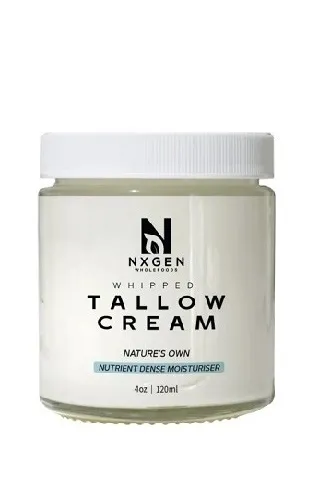Ashwagandha or Withania(29th May 2021):
 The magic of ancient Ayurveda has ensured the well-being of man since time immemorial. Much before science had made its progress, the medicinal herbs of Ayurveda were known to cure illnesses ranging from mild to serious ones. Ashwagandha or Withania is one such medicinal herb that has multiple benefits for the mind and the body.
The magic of ancient Ayurveda has ensured the well-being of man since time immemorial. Much before science had made its progress, the medicinal herbs of Ayurveda were known to cure illnesses ranging from mild to serious ones. Ashwagandha or Withania is one such medicinal herb that has multiple benefits for the mind and the body.
More about the magic herb
The scientific name of Ashwagandha is WithaniaSomnifera. It belongs to the family Solanaceae. It is an evergreen shrub that grows in India, some parts of Africa and the Middle East. Because of its stress-relieving properties, it is referred to as an adaptogen. The term “ashwa” means horse, and the name Ashwagandha describes the smell of its root, meaning “like a horse. It bears red fruits and therefore is often called winter cherry.
Eight benefits of Ashwagandha
Controls blood sugar
Sustained use of Ashwagandha has been known to reduce the level of blood sugar. By increasing insulin secretion and improving insulin sensitivity in muscle cells, Ashwagandha proves to be extremely beneficial for those suffering from diabetes.
Stress manager
An adaptogen is defined as a natural substance that helps the body to cope with stress. Ashwagandha is an effective adaptogen. Whenever the human body is stressed, it releases cortisol in response. It is the body’s reaction to stress. Consuming Ashwagandha helps to reduce this stress hormone in the human body. According to a study which was published in the journal Phytomedicine, the herb could reduce anxiety levels. Another study involving 64 people with chronic stress showed similar results: the group of people who were given Ashwagandha showed a 69% reduction in anxiety and insomnia. This was way more than the 11% reduction in stress among the other group.
Improves fertility
This magic herb has been known to increase fertility in both men and women. It gives a boost to the testosterone level in men. According to a study involving 75 men, there was a significant increase in sperm count and motility among the group which was treated with Ashwagandha. Female infertility can also be treated with Ashwagandha because it is an enhancer of the endocrine system. The endocrine system helps regulate the thyroid and adrenal glands and these glands play a vital role in maintaining the balance of reproductive hormones.
women. It gives a boost to the testosterone level in men. According to a study involving 75 men, there was a significant increase in sperm count and motility among the group which was treated with Ashwagandha. Female infertility can also be treated with Ashwagandha because it is an enhancer of the endocrine system. The endocrine system helps regulate the thyroid and adrenal glands and these glands play a vital role in maintaining the balance of reproductive hormones.
Reduces inflammation and infection
Ashwagandha has anti-inflammatory properties. It is a natural pain-reliever and this is why it has been used to treat arthritis. It helps fight infection as well. Studies have shown that Ashwagandha boosts the activity of natural killer cells which are immune cells that fight infection.
Controls cholesterol and triglycerides
Ashwagandha is a caretaker of the heart. By reducing cholesterol and triglyceride levels, it helps in keeping the heart, healthy. According to a study that was conducted for 60 days, the group of people who consumed Ashwagandha had shown a 17% decrease in LDL (bad) cholesterol and an 11% decrease in triglycerides.
Fights Anaemia
Ashwagandha is rich in iron content. Those who are suffering from iron deficiency are advised to consume Ashwagandha along with the prescribed medicines.
Has anti-cancer properties
 Ashwagandha contains a compound called withaferin. Withaferin helps to induce apoptosis, which is the programmed death of cancer cells. Reactive oxygen species (ROS) is boosted by withaferin inside the cancer cells, disrupting their functions. It also reduces the resistance of the cancer cells against apoptosis.
Ashwagandha contains a compound called withaferin. Withaferin helps to induce apoptosis, which is the programmed death of cancer cells. Reactive oxygen species (ROS) is boosted by withaferin inside the cancer cells, disrupting their functions. It also reduces the resistance of the cancer cells against apoptosis.
Improves memory and brain function
Ashwagandha stimulates the production of anti-oxidants which protects the nerve cells by fighting against free radicals. The impact of Ashwagandha in the improvement of memory and retention has also been discussed. As per a study, consumption of Ashwagandha for 50 weeks had resulted in significant improvement in general memory, task performance, and attention. Neurodegenerative diseases such as Alzheimer’s disease, Huntingdon’s Disease and Parkinson’s can be treated with Ashwagandha.
What about side effects?
- Taking large amounts of Ashwagandha daily can cause irritation in the intestinal mucosa resulting in digestive upset, diarrhoea, nausea, and vomiting.
- Pregnant women should not use Ashwagandha as it can lead to foetal distress and premature labour.
- People with autoimmune diseases like rheumatoid arthritis, lupus, Hashimoto’s thyroiditis, and type 1 diabetes should only take Ashwagandha under the supervision of a doctor.
How to use Ashwagandha?
Ashwagandha comes in the form of capsule, powder and liquid. Dosage of Ashwagandha should vary from person to person depending on the reason they are taking it. Research suggests that 250–600 mg of Ashwagandha per day can reduce stress. However, it is best to take the advice of a medical practitioner before deciding on the dosage.
Final thoughts
Ashwagandha is a treasure house of cures for all your ailments. It is a natural supplement backed by the authenticity of ancient Ayurveda that can improve your overall mental and physical health. However, it is wise to remember that more research needs to be undertaken to get complete information regarding the benefits of the herb. Meanwhile consuming the herb after consultation with your doctor might help you to achieve better health.
We at Healthboost have a range of products containing Ashwagandha as well as pure extracts of Ashwagandha root.
Ashwagandha Products:
Ashwagandha Root Extract Powder (Sanita Health & Wellbeing) …click
Herbs of Gold Anxiety Ease Size: 60 Tabs (AUD $40.99) …click
JS Health Anxiety + Stress Size: 60 Tabs (AUD $42.00) …click
FAQ:
Q) What does ashwagandha do for your body?
A) Ashwagandha comprises compounds that have the potential to promote brain relaxation, alleviate inflammation, decrease blood pressure, and modulate the immune system. Due to its historical usage as an adaptogen, ashwagandha finds application in various stress-related conditions. Adaptogens are thought to enhance the body’s ability to withstand physical and mental stress.
Q) Who should avoid ashwagandha?
A) Given its potential to boost immune response, it is advisable for individuals with autoimmune diseases, including multiple sclerosis, lupus, rheumatoid arthritis, type 1 diabetes, or other similar conditions, to refrain from consuming ashwagandha.
Q) Is ashwagandha good for anxiety?
A) When compared to lorazepam, a sedative and medication for anxiety, ashwagandha potentially exhibits a calming influence on symptoms of anxiety. A study conducted in 2000 indicated that the herb displayed a similar anxiety-reducing effect as lorazepam, implying that ashwagandha could be equally effective in alleviating anxiety.
Q) Can I drink alcohol with ashwagandha?
A) In general, it is advisable to avoid combining ashwagandha with alcohol. If you intend to consume alcohol, it is recommended to postpone the use of ashwagandha for a later time. It is always important to consult your healthcare provider before introducing ashwagandha into your routine. Overall, reducing alcohol consumption is recommended for achieving optimal well-being.
Q) Can I take magnesium and ashwagandha together?
A) The combination of ashwagandha and magnesium may potentially yield a synergistic impact on sleep. When these two supplements are combined, they can create a soothing and drowsy sensation. By taking them together before bedtime, they can induce a naturally tranquil state for sleep.
Healthboost Products:
-

Organic Whipped Tallow Cream 120ml
$34.50Add to cart -

Blushwood Berry Seed Extract EBC-46 Tincture
$120.95Add to cart -

Scalp Therapy Advanced Marine Technology Allay Organics
$48.50Add to cart -

Organic Cordyceps Militaris Evolution Botanicals
$72.99Add to cart -

Turkey Tail Mushroom Super Foods
$79.99Add to cart -

Cordyceps Mushroom Forest Superfoods
$89.00Read more
[bmi]
